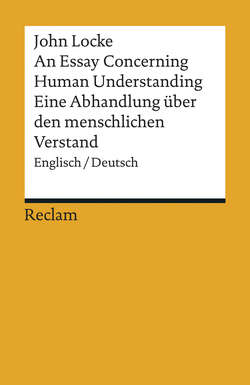Читать книгу An Essay Concerning Human Understanding / Ein Versuch über den menschlichen Verstand. Auswahlausgabe - John Locke - Страница 40
На сайте Литреса книга снята с продажи.
CHAPTER XXX
ОглавлениеOf Real and Fantastical Ideas
§ 1. BESIDES what we have already mentioned, concerning Ideas, other Considerations belong to them, in reference to things from whence they are taken, or which they may be supposed to represent; and thus, I think, they may come under a threefold distinction; and are
First, Either real, or fantastical.
Secondly, Adequate, or inadequate.
Thirdly, True, or false.
First, by real Ideas, I mean such as have a Foundation in Nature; such as have a Conformity with the real Being, and Existence of Things, or with their Archetypes. Fantastical or Chimerical, I call such as have no Foundation in Nature, nor have any Conformity with that reality of Being, to which they are tacitly [366]referr’d, as to their Archetypes. If we examine the several sorts of Ideas before-mentioned, we shall find, that,
§ 2. First, Our simple Ideas are all real, all agree to the reality of things. Not that they are all of them the Images, or Representations of what does exist, the contrary whereof, in all but the primary Qualities of Bodies, hath been already shewed. But though Whiteness and Coldness are no more in Snow, than Pain is; yet those Ideas of Whiteness, and Coldness, Pain, etc. being in us the Effects of Powers in Things without us, ordained by our Maker, to produce in us such Sensations; they are real Ideas in us, whereby we distinguish the Qualities, that are really in things themselves. […]
[…]
§ 4. Secondly, Mixed Modes and Relations, having no other reality, but what they have in the Minds of Men, there is nothing more required to those kind of Ideas, to make them real, but that they be so framed, that there be a possibility of existing conformable to them. These Ideas, being themselves Archetypes, cannot differ from their Archetypes, and so cannot be chimerical, unless any one will jumble together in them inconsistent Ideas. […]
§ 5. Thirdly, Our complex Ideas of Substances, being made all of them in reference to Things existing without us, and intended to be Representations of Substances, as they really are, are no farther real, than as they are such Combinations of simple Ideas, as are really united, and co-exist in Things without us. On the contrary, those are fantastical, which are made up of such Collections of simple Ideas, as were really never united, never were found together in any Substance; v. g. a rational [368]Creature, consisting of a Horse’s Head, joined to a body of humane shape, or such as the Centaurs are described. […]
